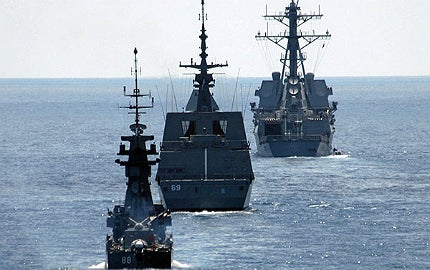Victory Class missile corvettes are in service with the Republic of Singapore Navy (RSN). The corvettes are currently being upgraded as part of the third generation transformation of the RSN. They are operated by the 188 Squadron of the RSN.
The RSN placed an order with Lürssen Werft for six missile corvettes in 1983. The first corvette was built and launched in Germany.
The remaining vessels were built domestically by Singapore Technologies (ST) Marine (formerly Singapore Shipbuilding & Engineering).
The first ship in the class, RSS Victory (88), was launched in June 1988 and commissioned in August 1990. RSS Valour (89) was launched in December 1998 and commissioned in August 1990. The third ship in class, RSS Vigilance (90), was launched in April 1989 and commissioned in August 1990.
RSS Valiant (91) was launched in July 1989 and commissioned in May 1991. RSS Vigour (92) was launched and commissioned in December 1989 and May 1991 respectively.
The last ship in class, RSS Vengeance (93), was launched in February 1990 and commissioned in to the RSN in May 1991.
Upgrading the missile corvettes
The life extension programme for the Victory Class was announced in 2009. The missile corvettes are being upgraded with modern capabilities, to meet the present and future requirements of the RSN.
The corvettes are being fitted with an upgraded combat management system, sensors, UAV handling system and weapon systems. The upgraded RSS Valiant fired its Barak missile during live-firing exercise in August 2011. Three of the six missile corvettes were upgraded by 2012.
Combat management system and missiles
Victory Class is outfitted with a state-of-the-art enhanced combat management system (CMS). The system delivers superior performance, similar to that of Formidable Class frigates. The enhanced CMS integrates shipboard sensors and weapon systems.
It provides the corvettes with the ability to detect, track and engage various surface, underwater and air threats. These capabilities will allow the corvettes to deal with potential threats.
The missile corvettes are equipped with Harpoon anti-ship missiles and Barak anti-air and anti-missile naval defence system. Harpoon can engage surface targets within the range of 100km.
Barak is an Israeli point-defence missile, developed by Israel Aerospace Industries and Rafael Advanced Defence Systems.
It can protect the ships from aircraft and missile threats. The missile has a range of ten kilometres.
Gun systems on Victory Class vessels
The main gun fitted on the bow deck is the Oto Melara super rapid gun. It can engage both surface and air targets within the range of 16km. The gun can fire at a rate of 120 rounds a minute.
Anti-submarine warfare (ASW)
The corvettes are fitted with two triple torpedo tubes for launching EuroTorp A244/S Mod 1 torpedoes. The torpedo has a maximum speed of 30-39kt and can strike submarines within the depth of 600m.
Sensors / radars of the RSN corvettes
The modern sensor systems aboard the Victory Class provide enhanced surveillance capability to the ships. The sensor suite integrates air and surface search radar, navigation radar and a variable depth sonar (VDS).
The countermeasures are provided by Elisra shipborne electronic warfare system, jammer, Plessey Shield chaff launchers and Rafael long range chaff launchers. The chaff can deceive incoming radar-guided anti-ship missiles.
UAV handling system and propulsion
The Victory Class lacks flight deck and hangar facilities to support rotorcraft operations. The vessels are, however, modified to launch and operate an unmanned aerial vehicle (UAV). The RSN acquired the Scan Eagle UAV system as part of the upgrade programme.
The system is composed of catapult launcher, UAV, Skyhook recovery system and control station. The UAV system complements the corvette by providing enhanced situational awareness and surveillance capabilities.
The Victory Class is powered by four MTU 16V 538 TB93 high-speed diesel engines driving four propellers via four shafts. The propulsion system provides a maximum speed of 30kt and a range of 4,000nmi.
Global Naval Surface Combatants and Warfare Systems Market 2011-2021
This project forms part of our recent analysis and forecasts of the global Naval Surface Combatants and Warfare Systems market available from our business information platform Strategic Defence Intelligence. For more information click here or contact us: EMEA: +44 20 7936 6783; Americas: +1 415 439 4914; Asia Pacific: +61 2 9947 9709 or via email.
Related content
Archer Class Submarines, Singapore
The Archer Class is an upgrade of Västergötland Class diesel-electric submarines which were originally developed for the Swedish Navy.
Formidable Class Frigate, Singapore
Six Formidable Class multi-mission frigates have been built for the Singapore Navy.








